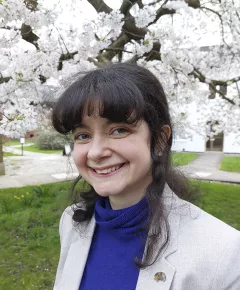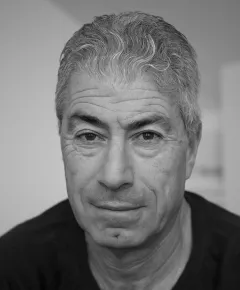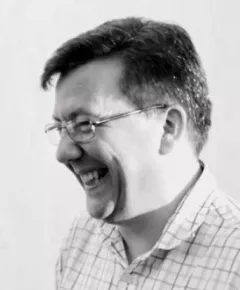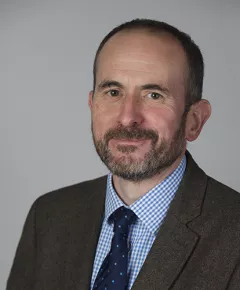Study History at Cambridge
History
The Cambridge History Faculty is one of the largest history departments in the world.
The Faculty has consistently obtained the highest ratings in official evaluations for teaching and research. Its work spans three millennia, straddles the globe and exemplifies the rich variety of sub-disciplines that constitutes history today.
Course Details
MAGDALENE CAMPUS CODE:
M
MINIMUM OFFER LEVEL
A-level: A*AA, IB: 41-42 points
UCAS CODE:
V100
ESSENTIAL SUBJECTS:
History
COURSE DURATION:
Three years – BA (Hons)
USEFUL SUBJECTS:
None
At Cambridge
The Cambridge History course (Tripos) is divided into three parts. Part IA (first year), Part IB (second year) and Part II, the third and final year of the course. In general, Part I emphasises a breadth of understanding of historical issues, encouraging students to study papers from a variety of periods and perspectives; Part II concentrates on acquiring depth of knowledge.
The Part I course offers a wide range of papers.
In the first year (Part IA) students make a choice of two out of total of eleven Outline papers which offer opportunities to study British, European and World history over extended periods. A few examples are early medieval Europe, the Global eighteenth century, the South since 1750, and North America since 1800. Alongside this, students will also select one Sources papers, in which they will examine primary material in detail. Finally, they will also take Historical Thinking A, which will introduce them to the methods and skills essential to Historical study.
In the second year, Part IB, students will select two Topic papers, which cover a defined place or period via intellectually challenging themes and perspectives. Second year students will also build on the skills developed in their Sources paper by choosing a Research Project. Finally, Historical Thinking B broadens out to look at different types of historical scholarship, ranging from environmental history to intellectual history.
The Part II course offers the opportunity to study a range of challenging and innovative areas of historical research in detail. You may choose from Special Subject and Advanced papers, which are often based on a lecturer’s current research, or the exploration of a complex theme. Students also have the option to substitute one paper with a research dissertation, the subject of which they can devise themselves, with the help of a supervisor. The majority of Part II students choose to do a dissertation and find developing their own research project very rewarding.
Teaching and other arrangements
Most History papers at Cambridge are taught through a combination of lectures, small classes, and supervisions (one-to-one, or very small-group teaching). Lectures will introduce students to different facets of their chosen period; supervisions will provide students with the opportunity to hone their essay-writing skills, to discuss primary sources, and to debate the significant issues in that area of history. Supervisions are one of the most distinctive features of study in Cambridge, providing undergraduates with expert personal guidance in their historical studies.
In addition, much of Historical Thinking will be taught in college. In the first year we explore, in turn, two specific books in History, either recent monographs or classics, discussing their approach, method, sources, and underlying assumptions. The second year is taught through a combination of college classes and faculty lectures, giving students the opportunity to focus their interests into a specialist area.
At Magdalene
History has always been a major part of the intellectual life of Magdalene College. Although Magdalene is one of the smaller Colleges, there are a number of Fellows teaching in History or related disciplines, and their research interests reflect many of the areas of historical studies in Cambridge.
At any one time we normally have around 18 undergraduates reading History in the College across all years, in addition to a varying number of graduate students embarked on MPhil or PhD study. It is a diverse and cosmopolitan community of scholars. We believe that a College environment provides unique conditions in which students can best develop their own intellectual interests in discussion with people with similar enthusiasms.
Although individual study is the principal foundation of the course, in College we supplement Faculty and supervision teaching with seminars, discussion classes, guest speakers and social events. For example, much of the teaching for the general paper in Historical Thinking takes place through College discussion classes.
Magdalene has an active History Society, open to all Magdalene historians - Fellows, graduates and undergraduates. It meets several times a Term, organises talks, excursions and social events. We also hold an Annual Dinner in Lent Term. In addition to the core teaching staff listed, the College has several Research Fellows in History. There are also several active retired Fellows in History (Professor Eamon Duffy, Dr Ronald Hyam, Professor Emma Rothschild, and Dr Christina Skott), as well as historians working in cognate subject areas, such as Dr John Patterson (Classics/Ancient History), Professor Amira Bennison (Middle Eastern Studies), and Dr John Munns (History of Art).
Language teaching
Magdalene is very committed to the ongoing development of students' language skills. Every historian is entitled to language tuition in any language of their choosing. Some keep up those they have studied at school; others tackle something entirely new. Knowledge of one or more languages helps with many Part I papers, and is particularly useful for some Part II courses, especially certain special subjects and dissertation topics. The most popular choices are French, Arabic, German, and Spanish.
The Centre of History and Economics at Magdalene College
From 2010, The Joint Centre for History and Economics has been based at Magdalene College and King's College, Cambridge, and at the Faculty of Arts and Sciences, Harvard University. It was established in 1991 to promote research and education in fields of importance for historians and economists. Its aim is to provide a forum in which scholars can address some of their common concerns, whether through the application of economic concepts to historical problems, through the history of economic and social thought, or through economic history.
The objective of the Centre is to encourage fundamental research in each of the two disciplines. It also encourages the participation of historians and economists in addressing issues of public importance. In cooperation with its counterpart Centre at Harvard, the Cambridge Centre undertakes research projects and organizes workshops, seminars and exchanges of faculty and graduate students.
What we are looking for
The best preparation for applying to Magdalene, and for interview, is to read as widely as you can. This can be both in History and in related fields such as literature and current affairs. There are no ‘set texts’ that we prescribe, but try and extend your reading around what you may have studied at school, and look beyond it to other periods and places. Follow your own interests and develop them. An enthusiasm for the subject is vital to studying History at university, and, when you apply for a place, reading is the best way of demonstrating this. There is excellent advice to how to go about this on the Faculty of History Virtual Classroom.
Subject requirements
Candidates should have or be on course to obtain History at A-level, at Advanced Higher Level, or at the Higher Level of the IB (or an equivalent national qualification such as the German Abitur, French Baccalaureate, etc). Two additional subjects at advanced level (A-level or equivalent) are normally required; we are willing to consider a wide range of subjects. Languages, English, Mathematics and Social Sciences are all particularly useful, but almost anything you study will have relevance. At GCSE level (or equivalent), we like to see a mixture of Arts and Science subjects and, normally, successful candidates will have obtained a good range of subjects, many of which will be at grade A or A*.
The minimum offer level is A*AA at A-level, or AAA at Advanced Highers. The minimum offer level we ask for in the IB is 41-42 points overall with 7, 7, 6 at Higher Level. Sometimes we may ask for an A* (or 7 at IB Higher Level) in History specifically. However, our offers are always tailor-made to the individual candidate and we try to set the offer at a realistic level.
Interviews and written work
Candidates for admission in History are asked to send two essays in to College. These essays should preferably have been written as part of the candidate's A-level History course (word limit 3000) and may form the basis of part of the discussion. There will also be general discussion both about the choice of course and about historical issues and practice.
Candidates will normally have two interviews. One will be with the Director of Studies and another historian, the second with two other Fellows, either in History or a related subject.
Contact information
Faculty of History
West Road
Cambridge UK
CB3 9EF
CALL
01223 335302



